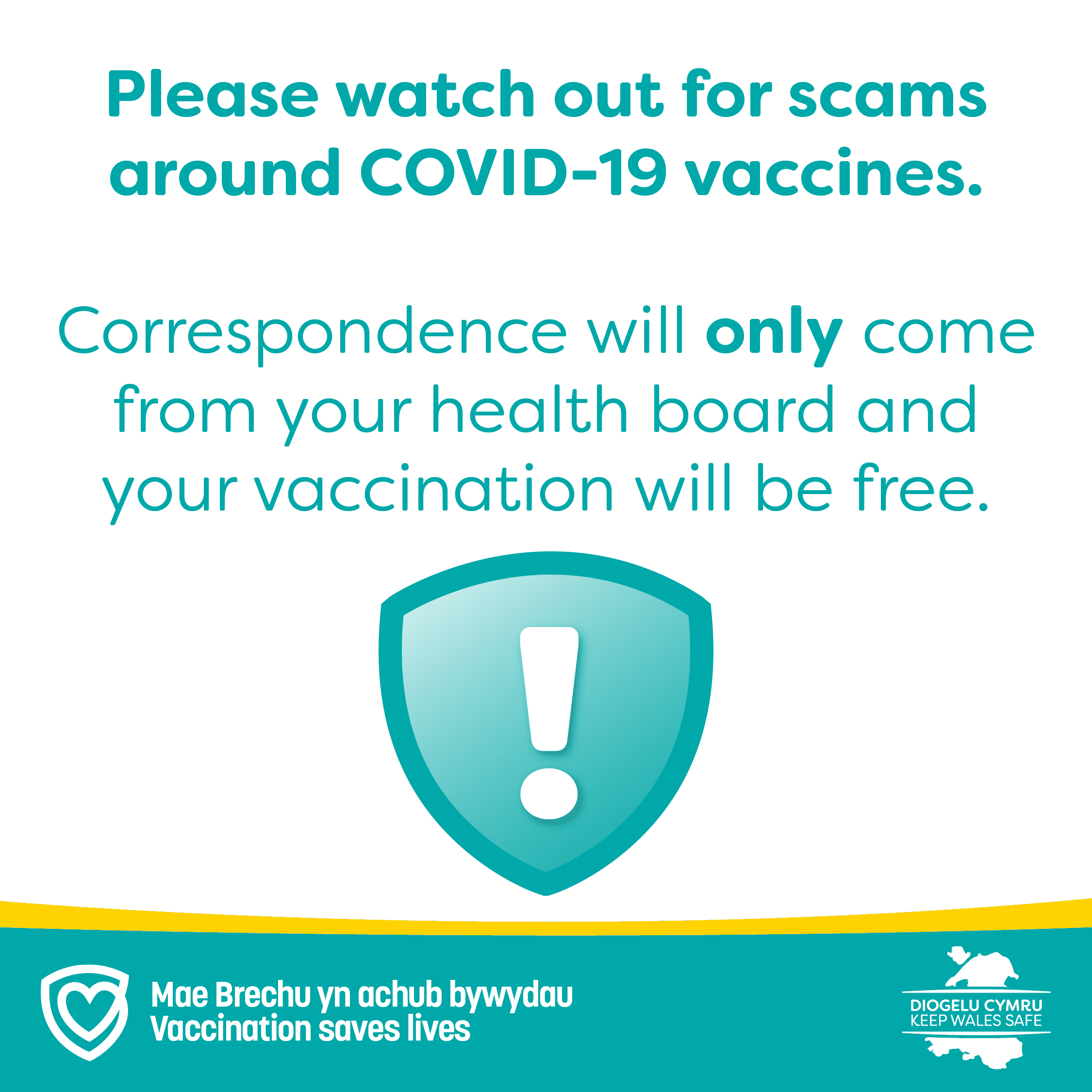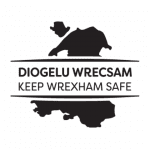Wrexham Trading Standards has been made aware of an email scam relating to Covid-19 vaccinations. The email claims to come from the NHS and asks you to follow a link to accept an invitation to receive a vaccine.
Unlike other similar recent scams, this one doesn’t appear to ask for payment details in the initial email, although we suspect the reasons for the links are to gain personal information or payment details at a later stage.
The email begins “The NHS is performing selections for coronavirus vaccination on the basis of family genetics and medical history. You have been selected to receive a coronavirus vaccination.”
This is a scam!
You will then see a list of bullet points titled ‘What you will need to do’, followed by some information on ‘Who can use this service’.
Further down the email, there are two clickable links; ‘NHS – Accept Invitation’ or ‘NHS – Reject Invitation’.
Please be aware that this is a scam and don’t click on either of these links.
Underneath the links, the email tries to pressure you, saying “you are required to reply to this invitation within 12 hours of this notification.”
“Always take the time you need”
Cllr Hugh Jones, Lead Member for Communities, Partnerships, Public Protection and Community Safety, said: “The NHS will never ask you for payment information as Covid-19 vaccines are completely free of charge. There is a worry around this particular scam in that people may be duped into thinking it’s a legitimate email, particularly because you aren’t asked to give over any payment details in the first instance.
“If you’re not sure, you can always forward any suspicious emails to report@phishing.gov.uk to have them checked out. Unfortunately, we are seeing an increasing number of fraudulent texts and emails attempting to use the pandemic as an opportunity to steal your personal information. Always take the time you need to identify whether something could be a scam first.”
Remember, the NHS will never ask for:
• your bank account or card details
• your pin or banking password
• copies of personal documents to prove your identity such as your passport, driving licence, bills or pay slips
For information about Covid-19 vaccinations, please visit the Public Health Wales website.
Some advice
It’s really important to follow these three steps when deciding whether it’s safe to part with your money or personal information:
STOP – Taking a moment to stop and think before parting with your money or information could keep you safe.
CHALLENGE – Could it be fake? It’s OK to reject, refuse or ignore any requests. Only criminals will try to rush or panic you.
PROTECT – Contact your bank immediately if you think you’ve fallen for a scam and report it to Action Fraud.
How to deal with suspicious emails
The National Cyber Security Centre (NCSC) created the Suspicious Email Reporting Service which makes it easy for people to forward suspicious emails to them.
The NCSC will then analyse the suspect email and any websites it links to.
If you have received an email which you’re not quite sure about, you can forward it to the Suspicious Email Reporting Service by emailing report@phishing.gov.uk
Report a cyber crime
If you think you may have been the victim of fraud or cyber-crime, you should report this to Action Fraud via their website or by calling 0300 123 2040.
Action Fraud is the UK’s National Fraud and Cyber Crime Reporting Centre.
General scam advice
Consumer advice can be obtained from the Citizens Advice Consumer Service. They can be contacted on 0808 223 1144 (Welsh) or 0808 223 1133 (English).
Stay safe and please stay scam aware.
???? Get the facts…read the latest NHS Wales Covid-19 vaccination info ????
[button color=”” size=”large” type=”square_outlined” target=”new” link=”https://phw.nhs.wales/topics/immunisation-and-vaccines/covid-19-vaccination-information/”]GET THE FACTS[/button]









